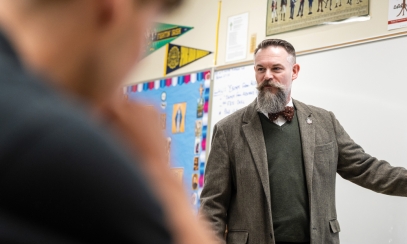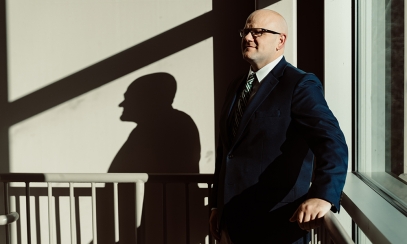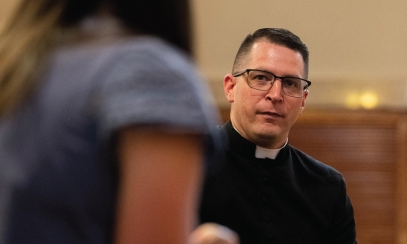
Heeding the call
Getting your Trinity Audio player ready...Start with the basic facts: The Diocese of Lansing currently has 29 seminarians spread throughout three different seminaries. Ten men are at St. John Vianney Seminary in St. Paul, Minnesota, 16 are at Sacred Heart Major Seminary in Detroit, and three are at the North American College in Rome. Of course, once you have asked, “How many?” and “Where?”, a third question might emerge: “What exactly do they do there?” No two seminaries are the same, but there are some core elements present at all the seminaries we use.
Start with the basic facts: The Diocese of Lansing currently has 29 seminarians spread throughout three different seminaries. Ten men are at St. John Vianney Seminary in St. Paul, Minnesota, 16 are at Sacred Heart Major Seminary in Detroit, and three are at the North American College in Rome. Of course, once you have asked, “How many?” and “Where?”, a third question might emerge: “What exactly do they do there?” No two seminaries are the same, but there are some core elements present at all the seminaries we use.
It is a common misconception that seminary is where you go once you are certain that you will become a priest. In reality, seminary is a place of further discernment. For discernment to be effective, the seminary must also be a place of prayer. Mass attendance and an hour of prayer are expected each day of every seminarian. Additionally, the men adopt the practice of praying the liturgy of the hours (a prayer book composed largely of Psalms that every priest promises to pray faithfully upon ordination).
Each seminarian has a spiritual director with whom he meets, and adoration is regularly offered. The goal is to ensure that every man is as close to God as possible, matures spiritually, and is better situated to hear his voice. This is important. It may be the case that God calls someone to leave seminary; and when the man is authentically responding to what he hears God saying, this is a success.
More than ordinations, seminaries are interested in God’s will for each individual. To that end, a difficult, but important, part of the process is the ongoing evaluation of seminarians. Not everyone who puts himself forward for advancement has a vocation to the priesthood, and so the seminary faculty has to discern on behalf of the Church. The faculty assesses whether the seminarian has the capability to be an effective pastor, whether he can live a holy and healthy life as a priest, and whether he demonstrates signs of a call.
The other role of a seminary may be more familiar: to prepare men for the priesthood. Academics play a visible and important role in seminary. Before ordination, each seminarian obtains an undergraduate degree in philosophy, and a graduate degree in theology. Class topics range from sacred Scripture and the doctrine of the Trinity to pastoral counseling and parish administration.
Complementing the education that the men receive, are apostolic experiences where they interact with people and engage in various forms of pastoral outreach. Some examples are teaching the Catechism, bringing Communion to the homebound, and volunteering with groups ministering to the poor.
A final point of focus for seminary is to help the seminarians grow on a human level. Whether it is acquiring virtues, learning how to communicate better, or coming to a greater level of maturity, this lays the foundation upon which the rest of formation builds.
Ultimately, those in charge of seminary formation are trying to ensure that those called by Christ to be his priests are able to freely respond and serve his Church well.



